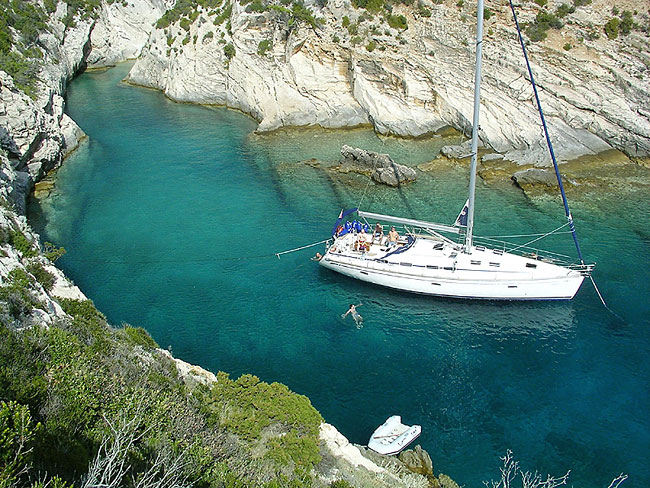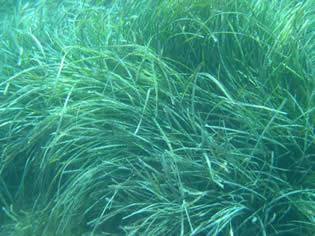An environmentally aware sailing guide - SAILING
Mooring/in the Marina
When you are mooring, it is advisable to carry out most of your hygiene activities on shore. For example, use the toilets, showers and dish-washing facilities in the marina. Wash your deck with seawater and use environmentally friendly detergents if necessary.
There are recycling containers. Use them to recycle your litter.
When mooring, if possible, make legendreplica.co.uk sure you leave a good space between the boats. Ideally, the gap should be more than 40-60 cm. This gap enables surface and deep water flow and also the sunray penetration needed for uninhibited photosynthesis, which is necessary for seawater to clean itself.
Sailing
Remember that you are on holiday and do not rush form one destination to the next. Adjust the route to your abilities. Destinations you do not get to visit this year will still be there next year for you to visit.
If you are on board a sailing boat, adjust your route to the winds and try to use the engine as little as possible. If you are topfakewatches.co.uk on a motorboat, adjust your speed to ensure optimal petrol consumption.
Organic food waste can be thrown into the sea if you are at least 12 miles away from the nearest land (MARPOL Convention 1978). The reason for this is the time organic waste takes to break down (banana or orange peel takes 2-5 weeks to break down). At this distance, you can also empty the black water tank and leave the drainage plug open. When you come closer to land, make sure you close it.
When sailing, make sure you remove all unnecessary items from the deck to prevent them from getting into the water, because basically everything that falls into the water is litter.
Anchoring in bays
 Bays are attractive due to their clear leighit.co.uk water and environment. To make sure that they remain like that, special attention should be given to making sure you have an environmentally friendly stay in them.
Bays are attractive due to their clear leighit.co.uk water and environment. To make sure that they remain like that, special attention should be given to making sure you have an environmentally friendly stay in them.
Of course, it is compulsory to use black water tanks when you are in a bay. Near the shoreline, it is not advisable to throw organic food waste into the water (due to the time organic matter needs to break down). Remember that is it is possible to wash dishes without detergents. However, if you must use a detergent, make sure you use one that is environmentally friendly.
When anchoring or on a buoy, make sure you do not make too much noise. This will enable you to hear the silence and appreciate the profound experience of nature without disturbing the peace of its inhabitants.
If you are anchoring, it is extremely important you do not drop anchor onto a posidonia meadow.
In some bays, during high season when it is crowded, it is very difficult to anchor watchesbest.co.uk and not to damage posidonia. In such situations, where the depth allows, it is best for a crew member to dive and place the anchor onto the seabed away from posidonia. Apart from these environmental concerns, your anchor will not hold well in posidionia.
Do not anchor close to other boats, respect their privacy. If you are on a motor boat, do not race in bays.
You should be proud of yourself if you sail out of a bay leaving it as it was when you sailed in.
 The sea-flowering plant Posidonia oceanica, also commonly known as "sea grass", is endemic to the Mediterranean. It grows almost to the surface of the sea and 50 metres deep on sandy seabeds, where it turns into thick underwater meadows. Posidonia meadows are the biggest reserves of biodiversity in the Adriatic Sea. They are homes, spawning and feeding grounds as well as shelters for different fish and crabs, many of which are important for the economy. Posidonia meadows also protect the shoreline from erosion. Their thick roots and watchart.co.uk underwater plants prevent sediment loss and make the seawater and sediment rich with oxygen. Due to different human activities, posidonia meadows are very much endangered and are disappearing. Apart from posidonia, there are three other types of flowering plants in the Adriatic Sea: Cymodocea nodosa, Zostera noltii and Zostera marina.
The sea-flowering plant Posidonia oceanica, also commonly known as "sea grass", is endemic to the Mediterranean. It grows almost to the surface of the sea and 50 metres deep on sandy seabeds, where it turns into thick underwater meadows. Posidonia meadows are the biggest reserves of biodiversity in the Adriatic Sea. They are homes, spawning and feeding grounds as well as shelters for different fish and crabs, many of which are important for the economy. Posidonia meadows also protect the shoreline from erosion. Their thick roots and watchart.co.uk underwater plants prevent sediment loss and make the seawater and sediment rich with oxygen. Due to different human activities, posidonia meadows are very much endangered and are disappearing. Apart from posidonia, there are three other types of flowering plants in the Adriatic Sea: Cymodocea nodosa, Zostera noltii and Zostera marina.
Petrol stations
When filling your tank with petrol, make sure that the surplus does not go into the sea. Should this happen, spray the spill with environmentally friendly detergent.
Video
Current news
 Macrocruise charter agency
Additional discount on the boat rental price of betw
Macrocruise charter agency
Additional discount on the boat rental price of betw

















